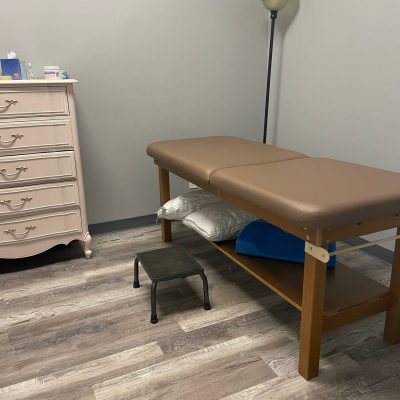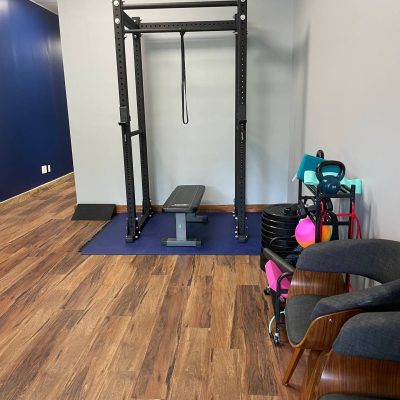Many individuals commonly experience bladder leakage, with one in three people encountering it at some point in their lives. Bladder leakage involves the unintentional loss of urine, presenting itself in various ways such as a few drops during physical activities, an urgent need to use the bathroom without timely access, or even a complete loss of urine during coughing or sneezing.
Regardless of the form it takes, bladder leakage is a prevalent but not normal occurrence. Frequently, individuals make the same three mistakes when attempting to prevent bladder leakage.
Limiting Fluid Intake
Firstly, some people believe that limiting fluid intake is a logical solution to mitigate urine leakage. However, restricting fluids can lead to more concentrated urine, irritating the bladder and intensifying the sense of urgency, potentially resulting in leakage.
The human body relies on a delicate balance of hydration for optimal physiological functioning, and the urinary system is no exception. When individuals intentionally curtail their fluid intake in an attempt to reduce urine leakage, they risk creating more concentrated urine. Concentrated urine is known to contain higher levels of substances like salts and waste products, which can irritate the sensitive lining of the bladder.
This heightened concentration of urine not only irritates the bladder but also contributes to an increased sense of urgency. The bladder, sensing the concentrated urine, may signal a more pressing need to empty itself, potentially leading to a heightened risk of leakage. In essence, the attempt to limit fluid intake, while well-intentioned, can inadvertently intensify the very symptoms individuals are trying to alleviate.
Moreover, maintaining adequate hydration is crucial for overall health. Depriving the body of sufficient fluids can have far-reaching consequences beyond the bladder, affecting various physiological functions such as kidney health, circulation, and even cognitive performance. Therefore, adopting a more nuanced approach that focuses on maintaining a healthy balance of fluid intake rather than outright restriction is essential for addressing bladder health concerns without compromising overall well-being.
“Just in Case” Peeing
The habit of emptying the bladder more frequently emerges when leakage occurs, with individuals going to the bathroom “just in case” to ensure an empty bladder. Paradoxically, this practice may contribute to increased bladder urgency, frequency, and the risk of leakage. “Just in case” peeing is not advisable.
The phenomenon of frequent bladder emptying, colloquially referred to as “just in case” peeing, often arises as a reactionary measure when individuals experience urinary leakage. The intention behind this behavior is to preemptively ensure that the bladder is empty, thereby aiming to minimize the risk of any untimely leakage. However, this seemingly logical approach can lead to a paradoxical cycle that exacerbates rather than alleviates the issue.
When individuals adopt the habit of regularly emptying their bladder, even in the absence of a genuine urge, it can disrupt the natural signaling mechanisms of the urinary system. The bladder, accustomed to being emptied more frequently than necessary, may become hypersensitive and develop a heightened sense of urgency. This heightened urgency can result in more frequent trips to the bathroom, contributing to a cycle of increased bladder frequency.
Moreover, the practice of “just in case” peeing can inadvertently weaken the muscles responsible for bladder control. The bladder’s capacity to hold urine is influenced by the strength of these muscles, and consistently emptying the bladder prematurely may lead to a gradual loss of muscle tone. As a consequence, weakened bladder muscles are less effective in retaining urine, potentially increasing the risk of leakage.
In essence, the very effort to prevent leakage by emptying the bladder more frequently can backfire, creating a self-perpetuating cycle of heightened urgency, increased frequency, and a heightened susceptibility to leakage. Instead of preemptively emptying the bladder, a more effective approach involves reestablishing a natural and healthy voiding pattern, responding to genuine signals of urgency, and incorporating pelvic floor exercises to strengthen the muscles that support bladder control. Breaking the cycle of “just in case” peeing is crucial for restoring a more balanced and effective bladder function.
Activity Avoidance
A common mistake involves avoiding activities that trigger bladder leakage. Many individuals cease engaging in such activities to prevent leakage, inadvertently leading to a decline in overall activity levels and compromised health over time.
Frequently, a well-intentioned response to the challenges of bladder leakage involves individuals avoiding activities that are perceived to trigger such episodes. This avoidance strategy may include refraining from physical activities, social engagements, or exercises that individuals associate with the potential for urinary leakage. While this may provide a temporary sense of control, the long-term consequences of this avoidance can be detrimental to both physical and mental well-being.
The decision to avoid certain activities as a means of preventing bladder leakage inadvertently sets off a chain reaction with broader implications. Physical activity is fundamental to maintaining overall health, including cardiovascular fitness, muscle strength, and joint flexibility. When individuals curtail their participation in activities that promote these health benefits, they may experience a decline in overall fitness levels.
Furthermore, the avoidance of social engagements or activities that bring joy and fulfillment can lead to social isolation and a diminished quality of life. The emotional toll of limiting oneself due to fear of bladder leakage can result in feelings of frustration, embarrassment, and even a loss of self-esteem. Over time, this emotional burden can contribute to heightened stress levels, which, in turn, may exacerbate bladder-related symptoms.
In essence, the decision to avoid activities that could potentially trigger bladder leakage creates a downward spiral, negatively impacting both physical and mental well-being. It’s crucial for individuals facing bladder leakage challenges to seek guidance from healthcare professionals who can provide strategies for managing and mitigating symptoms without resorting to the avoidance of meaningful activities. Engaging in a proactive and holistic approach, which may include pelvic floor exercises, behavioral strategies, and, if needed, medical interventions, can empower individuals to regain control over their lives and maintain a healthy, active lifestyle.
Watch this for more tips! Contact Magic City Physical Therapy in Hoover, Alabama, for help regaining control over your bladder!
(link to youtube video)







